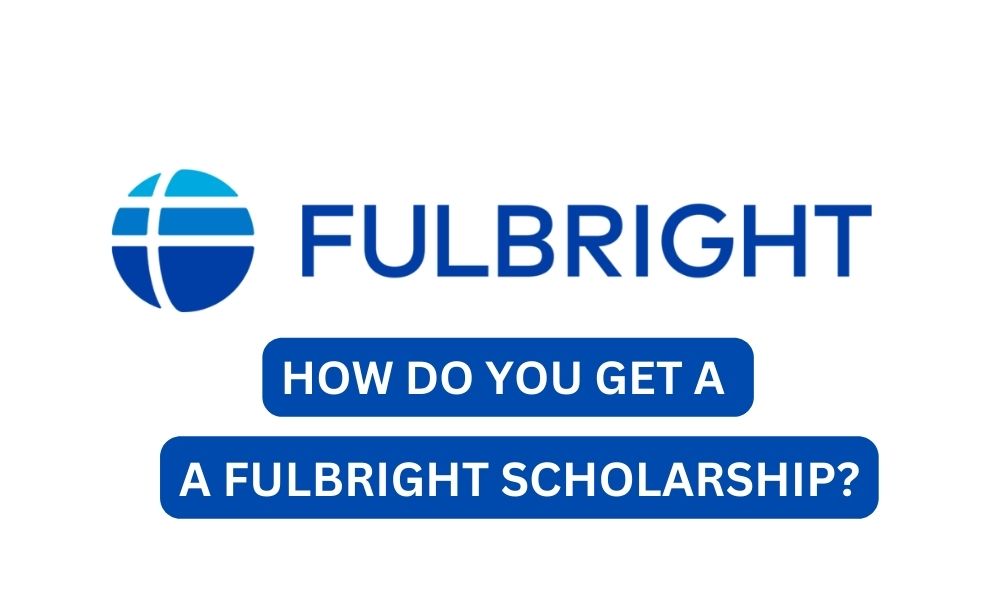Are you a student or a young professional with a burning desire to study or conduct research abroad? If so, the Fulbright Scholarship program might be the perfect opportunity for you. Established in 1946, the Fulbright program is one of the most prestigious and competitive scholarship programs in the world, offering grants to individuals from various backgrounds and disciplines. In this article, we will explore the steps and strategies to increase your chances of securing a Fulbright Scholarship.
Contents
1. Understand the Fulbright Program
Before diving into the application process, it is crucial to have a clear understanding of what the Fulbright program entails. The program is sponsored by the U.S. Department of State and aims to promote mutual understanding between the people of the United States and people from other countries. It offers opportunities for students, scholars, and professionals to study, teach, or conduct research abroad.
The Fulbright program operates in more than 160 countries and provides grants in various fields, including but not limited to arts, humanities, social sciences, STEM, and public health. The program offers different types of grants, such as Study/Research Grants, English Teaching Assistant (ETA) Grants, and specialized grants for specific disciplines.
Read:How long Does hope scholarship last?2. Determine Your Eligibility
While the Fulbright program is open to a wide range of applicants, there are certain eligibility criteria that you must meet. These criteria may vary depending on the country and the type of grant you are applying for. Generally, the Fulbright program requires applicants to:
- Be a U.S. citizen
- Hold at least a bachelor’s degree by the start of the grant period
- Demonstrate proficiency in the language of the host country (if applicable)
- Have a strong academic record and relevant experience in the proposed field of study or research
- Be in good health
It is essential to carefully review the eligibility requirements specific to the country and grant you are interested in. Each country’s Fulbright Commission or U.S. Embassy website will provide detailed information on eligibility criteria and specific application guidelines.
3. Research Available Opportunities
Once you have determined your eligibility, it is time to explore the available Fulbright opportunities. Start by visiting the official Fulbright website (fulbright.state.gov) to get an overview of the program and its participating countries. The website provides a comprehensive list of countries offering Fulbright grants, along with detailed information about each country’s program.
Read:Are scholarships tax deductible for companies?Take the time to research the countries and grants that align with your academic or professional goals. Consider factors such as the host country’s culture, language, academic institutions, and research opportunities. Look for grants that specifically cater to your field of study or research interest.
4. Craft a Strong Application
Now that you have identified the Fulbright opportunity you wish to pursue, it is time to start working on your application. The Fulbright application is a comprehensive process that requires careful planning and attention to detail. Here are some key components of a strong Fulbright application:
a. Personal Statement
Your personal statement is a crucial part of your application. It provides an opportunity to showcase your motivation, goals, and how the Fulbright experience aligns with your academic or professional trajectory. Be sure to highlight your relevant experiences, achievements, and how they have prepared you for the proposed project or study abroad.
Use specific examples and anecdotes to demonstrate your passion and commitment. Tailor your personal statement to the host country and grant you are applying for, emphasizing the cultural and academic exchange aspects that align with the Fulbright program’s mission.
Read:Investing in Education: De La Salle University Scholarship Opportunitiesb. Research Proposal
If you are applying for a Study/Research Grant, a well-crafted research proposal is essential. Clearly outline your research objectives, methodology, and expected outcomes. Demonstrate your knowledge of the host country’s academic landscape and explain how your research will contribute to the field.
Provide a timeline for your project and explain how you plan to engage with local scholars, institutions, or communities. A strong research proposal shows that you have a clear plan and are capable of conducting meaningful research abroad.
c. Letters of Recommendation
Letters of recommendation play a significant role in the Fulbright application process. Choose recommenders who can speak to your academic abilities, research potential, and personal qualities. It is important to select individuals who know you well and can provide specific examples of your achievements and potential.
Discuss your Fulbright application with your recommenders in advance, providing them with relevant information about the program and your proposed project. This will help them write tailored and compelling letters that support your application.
d. Language Proficiency
If the host country’s language is not English, you may be required to demonstrate proficiency in the language. Some countries may require language test scores, while others may conduct interviews or language evaluations. Be sure to prepare accordingly and allocate sufficient time to improve your language skills if necessary.
5. Seek Guidance and Feedback
Applying for a Fulbright Scholarship can be a complex and competitive process. It is highly recommended to seek guidance and feedback from mentors, professors, or Fulbright program advisors. They can provide valuable insights, help you refine your application materials, and offer suggestions to strengthen your candidacy.
Consider reaching out to former Fulbright scholars or alumni from your university who have gone through the application process. They can share their experiences, provide tips, and offer guidance based on their firsthand knowledge.
6. Prepare for the Interview
If your application makes it to the next stage, you may be invited for an interview. The interview is an opportunity for the Fulbright selection committee to assess your suitability for the program and delve deeper into your application.
Prepare for the interview by thoroughly reviewing your application materials, including your personal statement and research proposal. Be ready to articulate your goals, motivations, and how you plan to contribute to the host country’s academic or cultural landscape.
Practice answering potential interview questions with a focus on highlighting your experiences, skills, and how they align with the Fulbright program’s objectives. Consider conducting mock interviews with mentors or advisors to gain confidence and refine your responses.
7. Submit a Complete and Polished Application
Before submitting your application, ensure that all the required documents are complete, well-organized, and free of errors. Proofread your personal statement, research proposal, and any other written materials multiple times to eliminate grammatical or typographical errors.
Follow the specific guidelines provided by the Fulbright Commission or U.S. Embassy of the host country regarding the submission process. Pay attention to deadlines and make sure to submit your application well in advance to avoid any last-minute technical issues.
Summary:
The Fulbright Scholarship program offers a life-changing opportunity for individuals seeking to study, teach, or conduct research abroad. By understanding the program, determining your eligibility, researching available opportunities, crafting a strong application, seeking guidance, preparing for the interview, and submitting a complete application, you can increase your chances of securing a Fulbright Scholarship.
Remember, the Fulbright program is highly competitive, and success is not guaranteed. However, by putting in the effort, showcasing your passion and potential, and aligning your goals with the program’s mission, you can present a compelling case for why you deserve a Fulbright Scholarship. Good luck!









